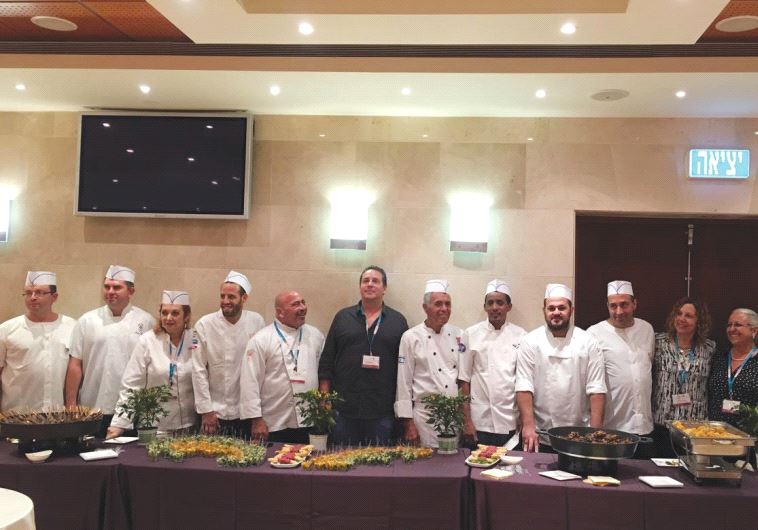Hospital officials: More funds needed for healthier food
Food service heads say state subsidies cover wrong products, ignore special items such as gluten-free baked goods.
 MEDICAL CENTER food service staff attend the forum in Haifa on Monday.(photo credit: NETANEL IZAK/RAMBAM MEDICAL CENTER)
MEDICAL CENTER food service staff attend the forum in Haifa on Monday.(photo credit: NETANEL IZAK/RAMBAM MEDICAL CENTER)